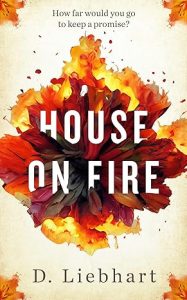The Birth of READ Magazine
The Birth of READ Magazine
 I wrote my first novel when I was in my late twenties. My humanities graduate program (not an MFA) allowed students to do a creative project in lieu of a thesis. There were collections of poetry and short stories, portfolios of art, and even some musical compositions. I submitted a novel and like many first novels, it was terrible.
I wrote my first novel when I was in my late twenties. My humanities graduate program (not an MFA) allowed students to do a creative project in lieu of a thesis. There were collections of poetry and short stories, portfolios of art, and even some musical compositions. I submitted a novel and like many first novels, it was terrible.
Unlike many of my fellow students who’d already spent years honing their various crafts, I was relatively new to writing and a total novice to novel writing. I’d kept a journal for years and furiously completed all the exercises in Natalie Goldberg’s brilliant books Writing Down the Bones and Wild Mild but my writing focused on inspiration and spark not the nitty-gritty of plot, structure, and character development. The poor professor who suffered through my book said as much and I realized I had work to do (What I actually did was bristle and brood about his lack of ability to recognize my raw genius then decided I had work to do but, you know, I was young).
Learning to write short stories seemed like a logical first step on my journey to become a better writer. I love short stories. I’ve literally been so consumed while reading flash fiction from Electric Literature on my phone, that I’ve missed my bus stop and been late to work. Transporting one away from the misadventure that is the Albuquerque public bus system is no small feat. That’s powerful magic.
Short stories used to be big money makers for writers. Popular magazines carried short works by well-known authors like Washington Irving, Edgar Allan Poe, Agatha Christie, F. Scott Fitzgerald, Ernest Hemingway, and Flannery O’Connor. Since the popularization of television, however, the short story has been disappearing from mainstream publications. Only a few big magazines remain that include short stories—The New York, Harper’s, The Paris Review, The Atlantic. Most short stories these days are written and read by MFA students.
It took me a few years to learn how to create a decent short story. After landing some mid-level publications, I started the whole learning process over again with novels. But I still love short stories. Short stories are my preferred procrastination. If I’m supposed to be plotting, writing, or editing a novel, I’ll typically have some wild and weird short story that I’m toying with on the side. It’s not that I don’t love my novels, I do, but there’s something about that shorter form that still calls to me.
READ magazine is a passion project. We want to create a home for short form writing that can be enjoyed by many readers and we want writers to be rewarded for their work. We’ll be publishing flash fiction, short stories, creative non-fiction and poetry. If you’re interested in learning more or want to consider submitting to our current flash fiction contest (no entrance fee), please check us out: https://readmagazine.substack.com/ We’d love you to be part of the adventure.
—
D. Liebhart is a nurse and writer. She writes (and sometimes lives) stories about ordinary people in extraordinary circumstances, where they learn that life is rarely predictable and answers to life’s most complex questions are almost never black and white.
House on Fire, her debut novel, was long-listed for the 2022 Petrichor Prize. Her essay Thalassophobia (a true account of a very out-of-the-ordinary honeymoon) won the 2021 Linda Julian Creative Nonfiction Prize from Emrys Journal and is now available on her website. https://dliebhart.com/
Category: On Writing

 How far would you go to keep a promise?
How far would you go to keep a promise?






















